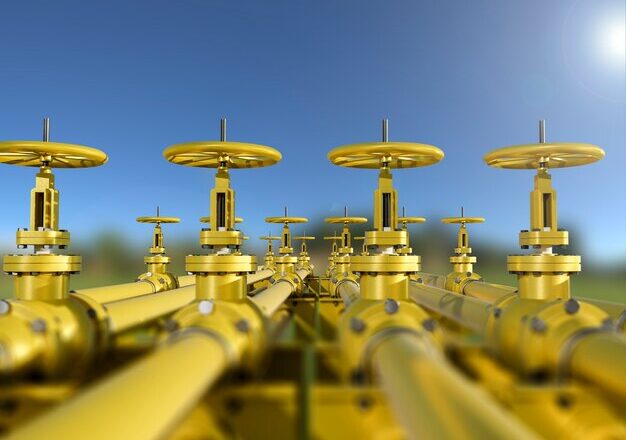- Description
- Reviews
Course Content:
The goal of this course is to provide participants with an in-depth understanding of fiscal oil metering systems, their design, operation, and maintenance. The course aims to equip professionals with the knowledge needed to accurately measure and account for the flow of oil in compliance with legal, regulatory, and commercial requirements.
Course Objectives:
1. Understanding Fiscal Oil Metering Systems:
To grasp the purpose and importance of fiscal metering in oil measurement for commercial transactions.
To understand the legal and regulatory frameworks that govern fiscal oil metering.
2. Principles of Flow Measurement:
To learn the principles behind flow measurement in oil pipelines and storage facilities.
To understand different metering technologies, such as positive displacement meters, turbine meters, and Coriolis meters.
3. System Components and Design:
To familiarize participants with the components of fiscal metering systems, including meters, sensors, and control devices.
To learn how to design and configure a fiscal metering system based on specific operational needs.
4. Installation and Calibration:
To understand best practices for the installation and calibration of metering systems.
To explore the process of setting up metering stations for accuracy and reliability.
5. Data Management and Reporting:
To develop skills in managing and interpreting data generated by fiscal meters.
To learn how to create reports and logs that comply with regulatory and contractual obligations.
6. Maintenance and Troubleshooting:
To understand the maintenance requirements of fiscal metering systems to ensure long-term accuracy and functionality.
To develop skills in troubleshooting and resolving common issues with fiscal meters.
Course Contents:
Module 1: Introduction to Fiscal Oil Metering
- Overview of fiscal metering and its role in the oil and gas industry.
- Importance of accurate oil measurement for commercial and regulatory purposes.
- Legal and regulatory requirements for oil metering (e.g., contracts, government regulations).
Module 2: Principles of Flow Measurement
- Basic principles of fluid dynamics and flow measurement.
- Types of flow meters used in fiscal oil metering:
- Positive Displacement Meters
- Turbine Meters
- Coriolis Meters
- Ultrasonic Meters
- Selection criteria for different types of flow meters based on fluid properties (density, viscosity, etc.).
Module 3: Components of a Fiscal Metering System
- Metering skids and stations.
- Components such as flow meters, temperature sensors, pressure sensors, and control valves.
- Data acquisition and remote monitoring systems.
- Installation and integration of metering systems with other plant systems (SCADA, DCS).
Module 4: Meter Calibration and Accuracy
- Principles of metering calibration for accuracy and reliability.
- Procedures for flow meter calibration, including reference standards and test equipment.
- Factors affecting the accuracy of meters (temperature, pressure, flow conditions).
- Calibration intervals and record-keeping requirements.
Module 5: Installation Best Practices
- Site selection and preparation for meter installation.
- Guidelines for pipework design around fiscal meters (e.g., straight runs, installation of strainers).
- Installation of ancillary equipment (e.g., pressure and temperature control devices).
- Ensuring accuracy and compliance during installation.
Module 6: Data Acquisition and Management
- Data logging and real-time monitoring systems.
- Managing data generated by meters (flow rate, volume, temperature, pressure).
- Reporting and record-keeping for commercial and regulatory purposes.
- Integrating fiscal metering systems with broader plant monitoring systems (SCADA, PLCs).
Module 7: Maintenance and Troubleshooting
- Preventive maintenance procedures for fiscal metering systems.
- Identifying common issues with metering systems (e.g., clogging, sensor malfunctions, calibration drift).
- Troubleshooting techniques and corrective actions.
- Maintaining compliance with calibration standards and accuracy during operation.
Module 8: Case Studies and Industry Applications
- Real-world case studies of fiscal oil metering in different environments (e.g., pipeline measurement, storage tank metering).
- Best practices from the industry and lessons learned from operational issues.
- Future trends in fiscal oil metering (e.g., digitalization, smart metering).
Target Audience
- Engineers and technicians involved in oil measurement and metering system design.
- Professionals in the oil and gas industry working in operations, maintenance, and compliance.
- Regulatory bodies and inspection authorities overseeing metering standards and practices.
- New entrants into the field of oil metering or individuals transitioning from other technical disciplines.
Learning Outcomes
- By the end of the course, participants will be able to:
- Design, install, and operate fiscal oil metering systems that meet commercial and regulatory standards.
- Understand the principles behind various oil flow measurement technologies.
- Accurately calibrate and maintain fiscal metering systems for maximum reliability and compliance.
- Effectively manage and report data generated by metering systems for regulatory and contractual purposes.
- Troubleshoot common issues and ensure optimal performance of fiscal metering systems in real-world operations.





